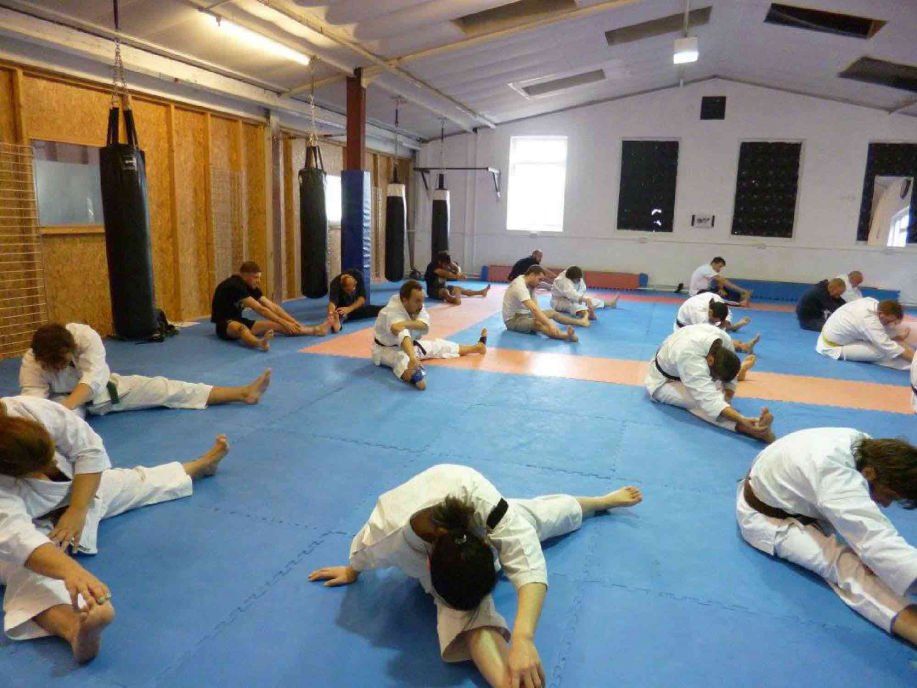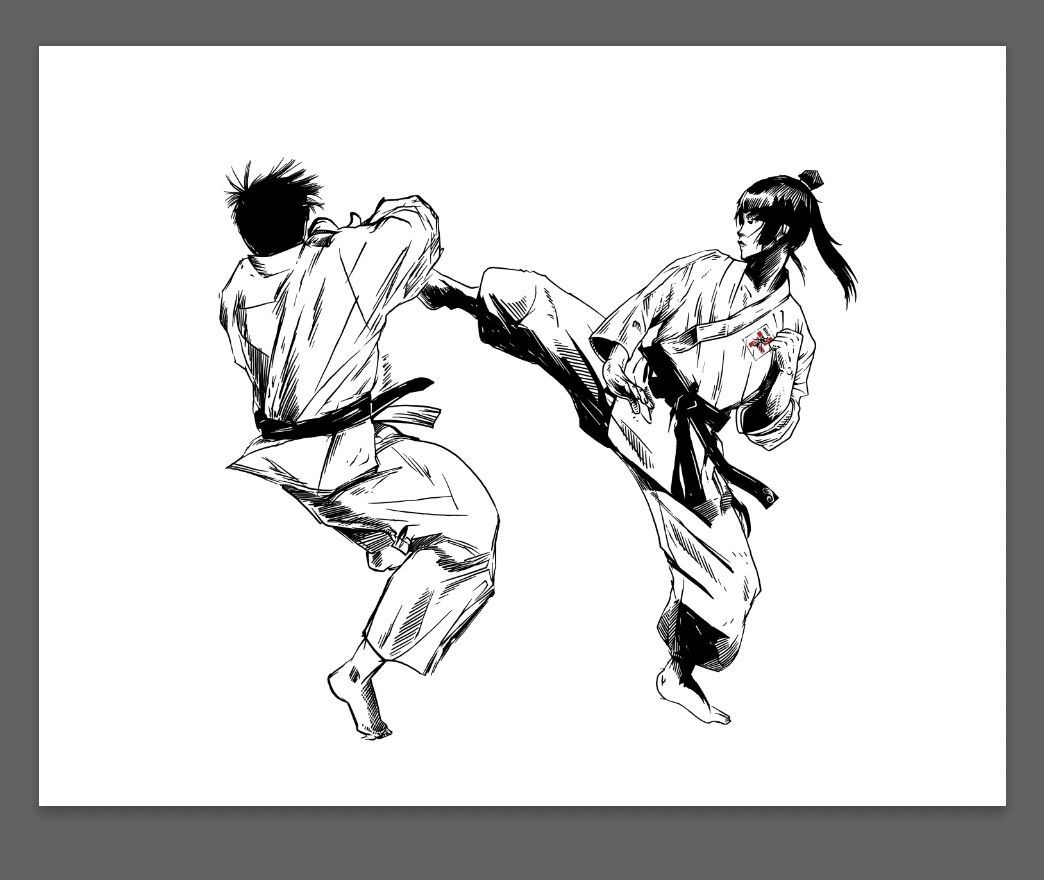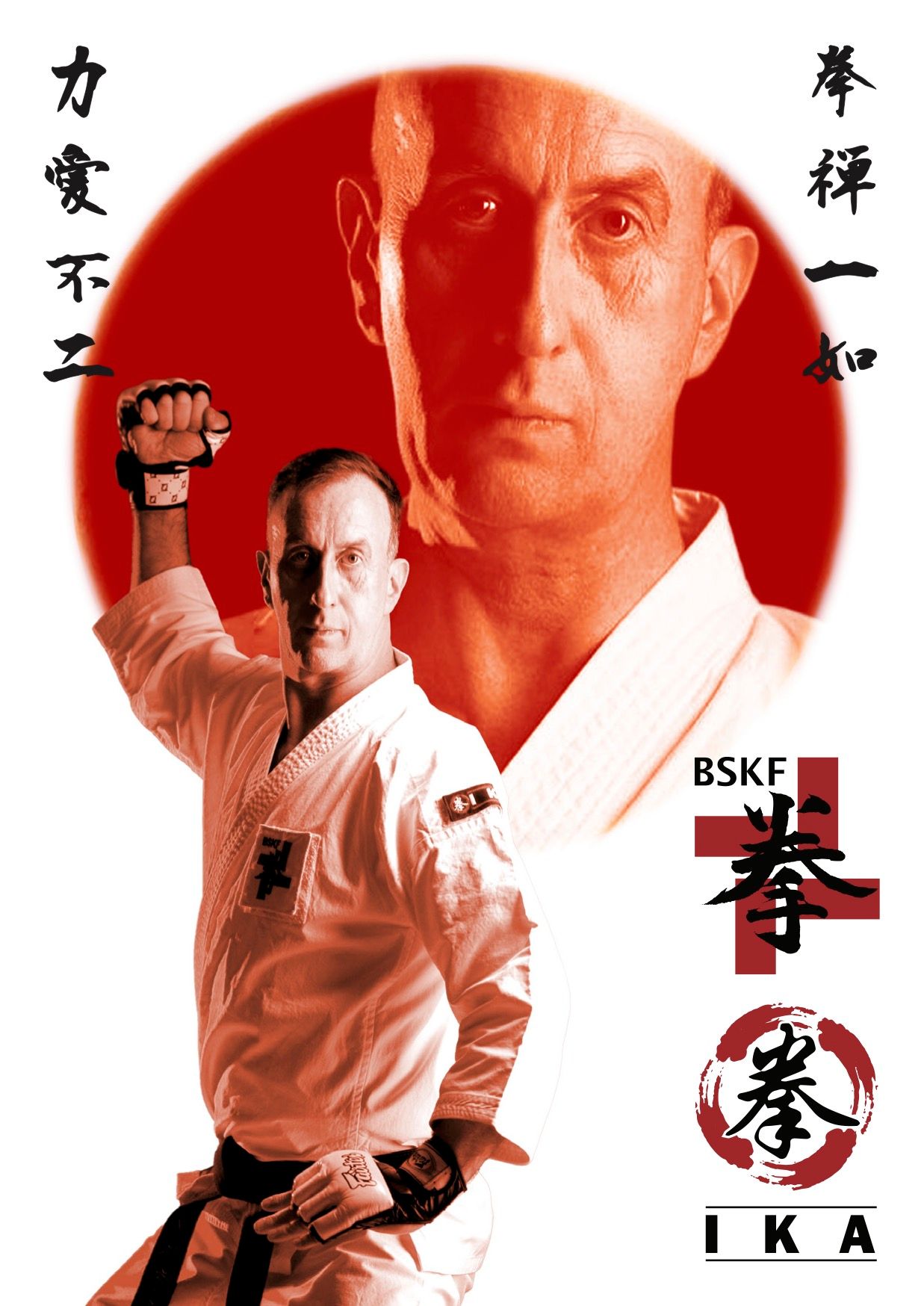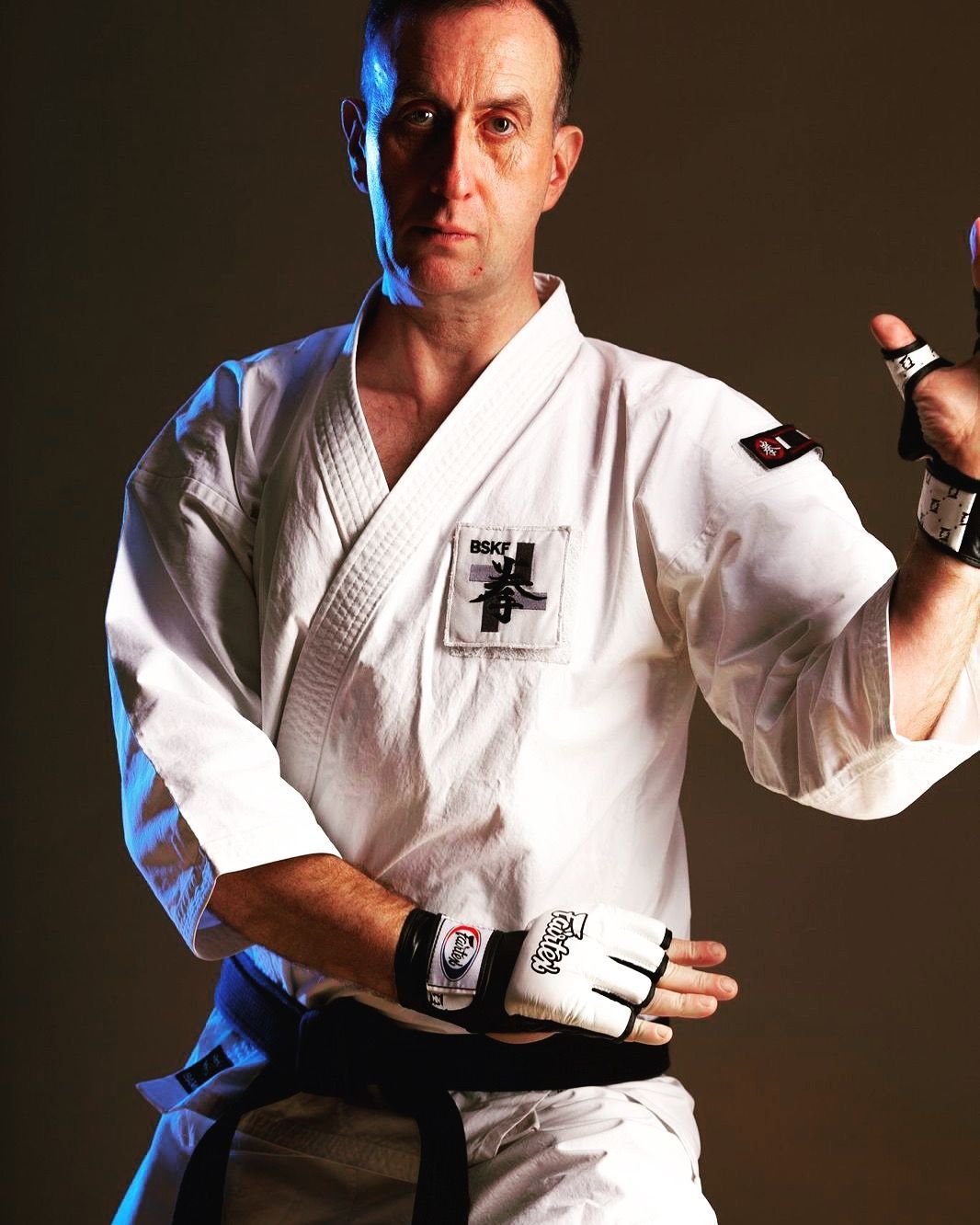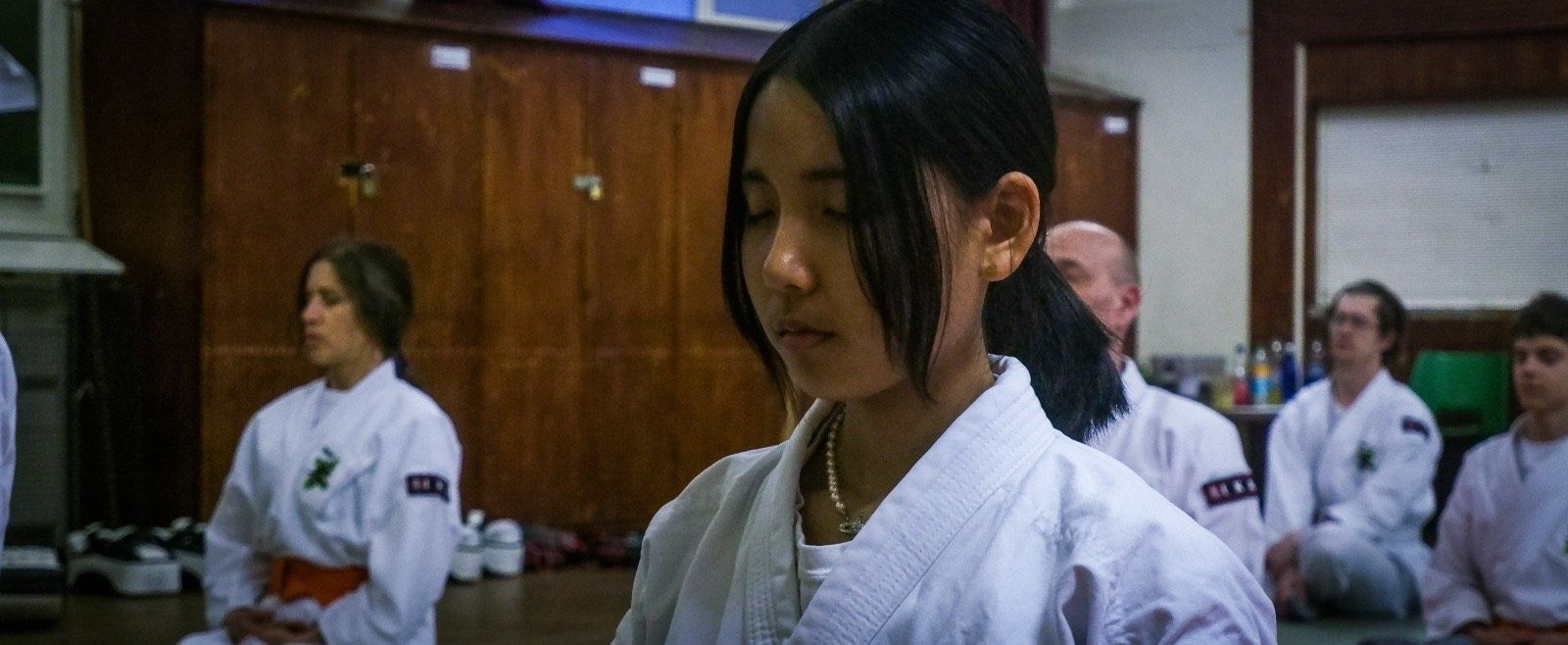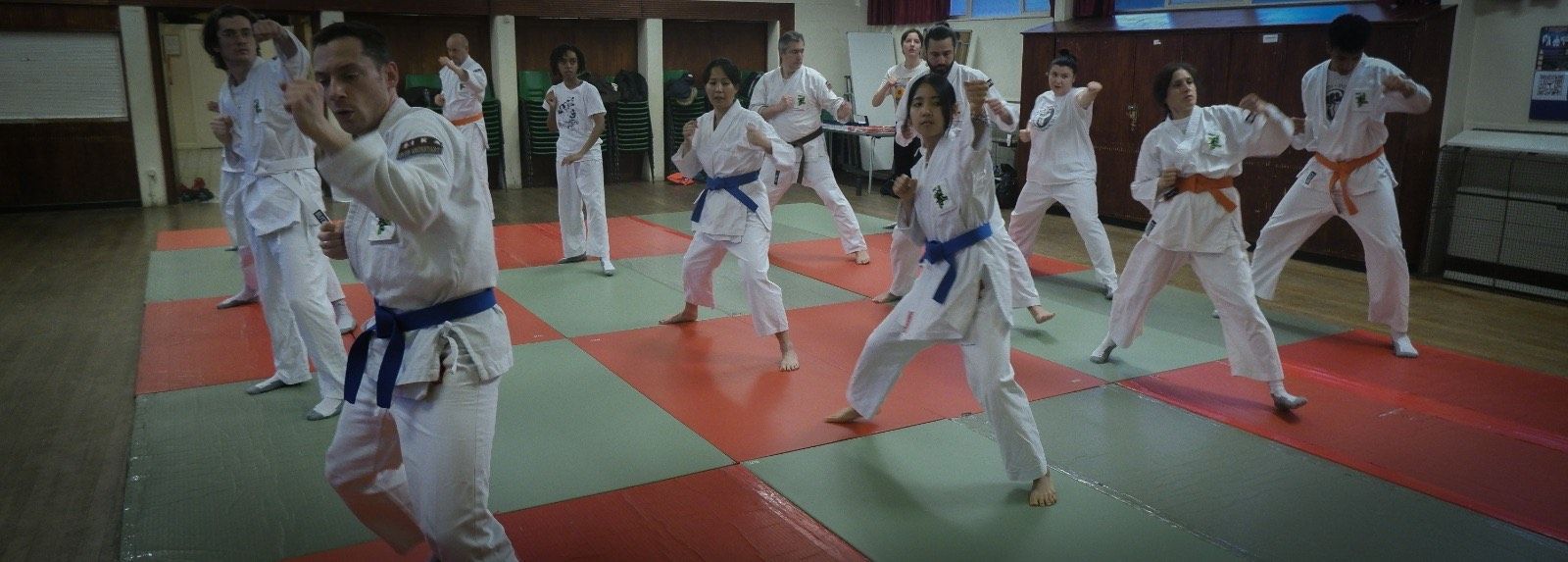Sen means before an event. If a kenshi is 1 step ahead of an opponent then they have the advantage.
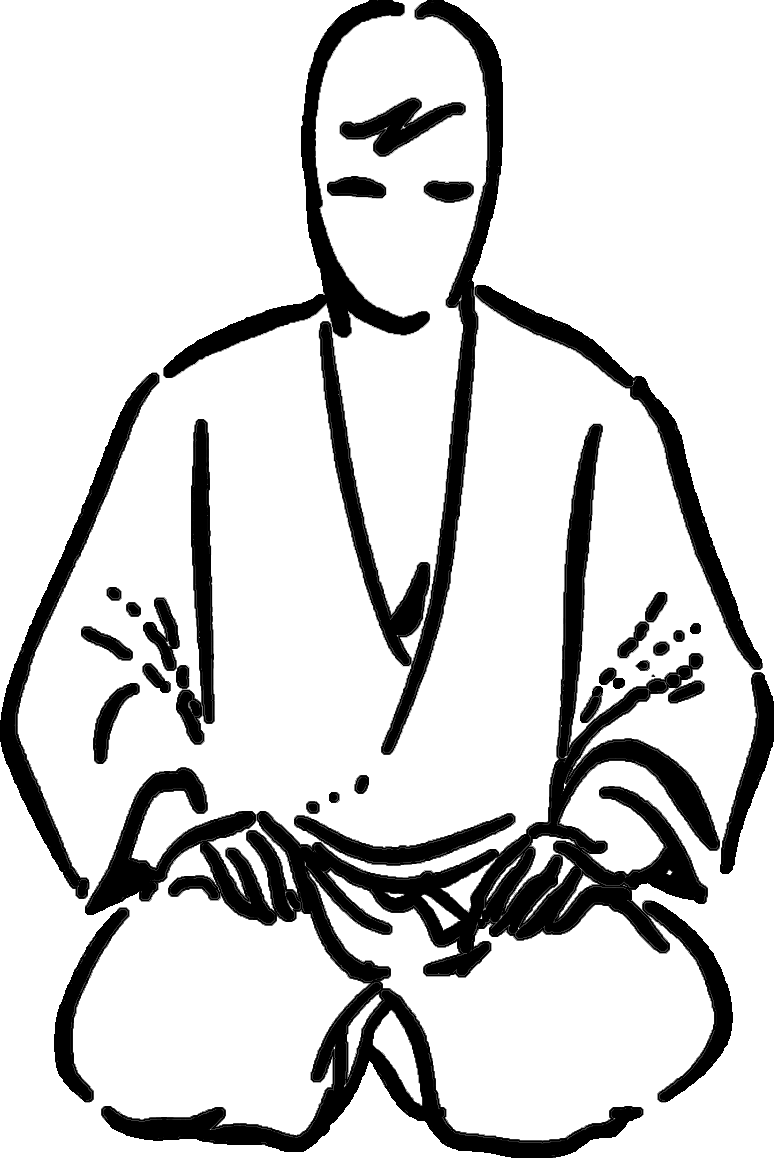
Sen means before an event. If a kenshi is 1 step ahead of an opponent then they have the advantage. Whoever strikes first has an advantage but this has a moral, ethical and legal dilemma.
Sen can be described as initiative. But there are three types of Sen as below:
Go no Sen - knowing an attack is coming and taking steps to avoid or stop it, and then counter attacking. Go no sen requires the kenshi to be fully alert and to be waiting for the time to stop their opponents attack and then counter attack. An example of this could be kaishin zuki or shita uke zuki: the kenshi has a defensive or non-aggressive / non-threatening posture and can then block and counter when a punch is thrown at their head.
Tai no sen - being aware that an attack is incoming, has already started, and so the kenshi immediately performs a near simultaneous defence and offence. As soon as a kenshi sees their opponent move that is the time to act
Sen no sen - knowing that an attack is about to be started and then the kenshi launches a pre-emptive strike. The clues will be change in body language such as clenched fists, change in breathing, aggressive language. The preemptive strike is to stop violence being directed at the kenshi. To an onlooker it could be viewed that the kenshi has sucker punched their opponent but the reality is that the kenshi was aware that they were about to be the victim of an attack.
The sooner a kenshi has control of a situation, the better.
Ki no sen - this is the use of ki energy to be aware of the intentions of an opponent. The theory is that if ki is very sensitive a kenshi can predict the psychological makeup of their opponent and what decisions they may make.
Learn more about South Wimbledon Shorinji Kempo Dojo,
click here...
To book a class,
click here...



